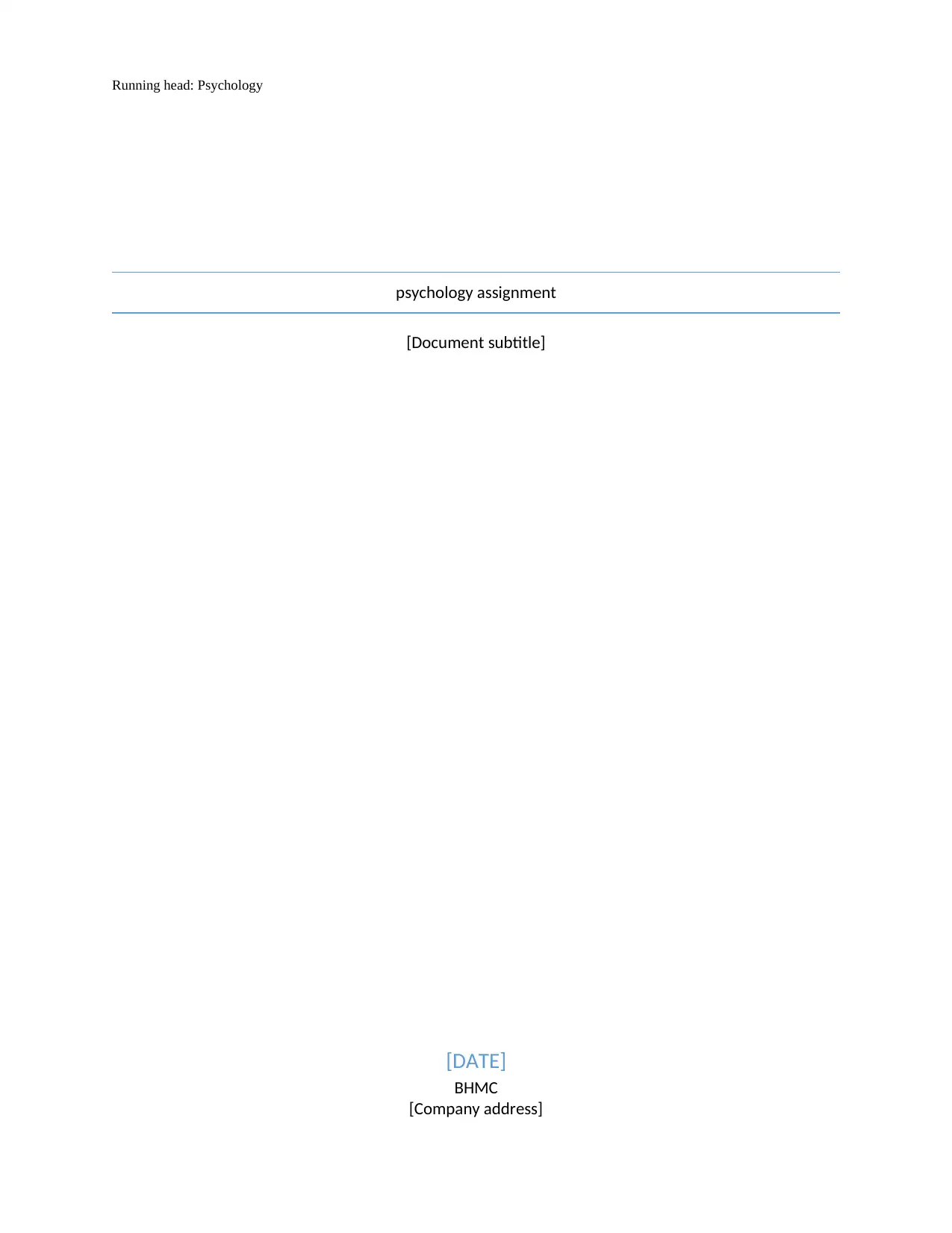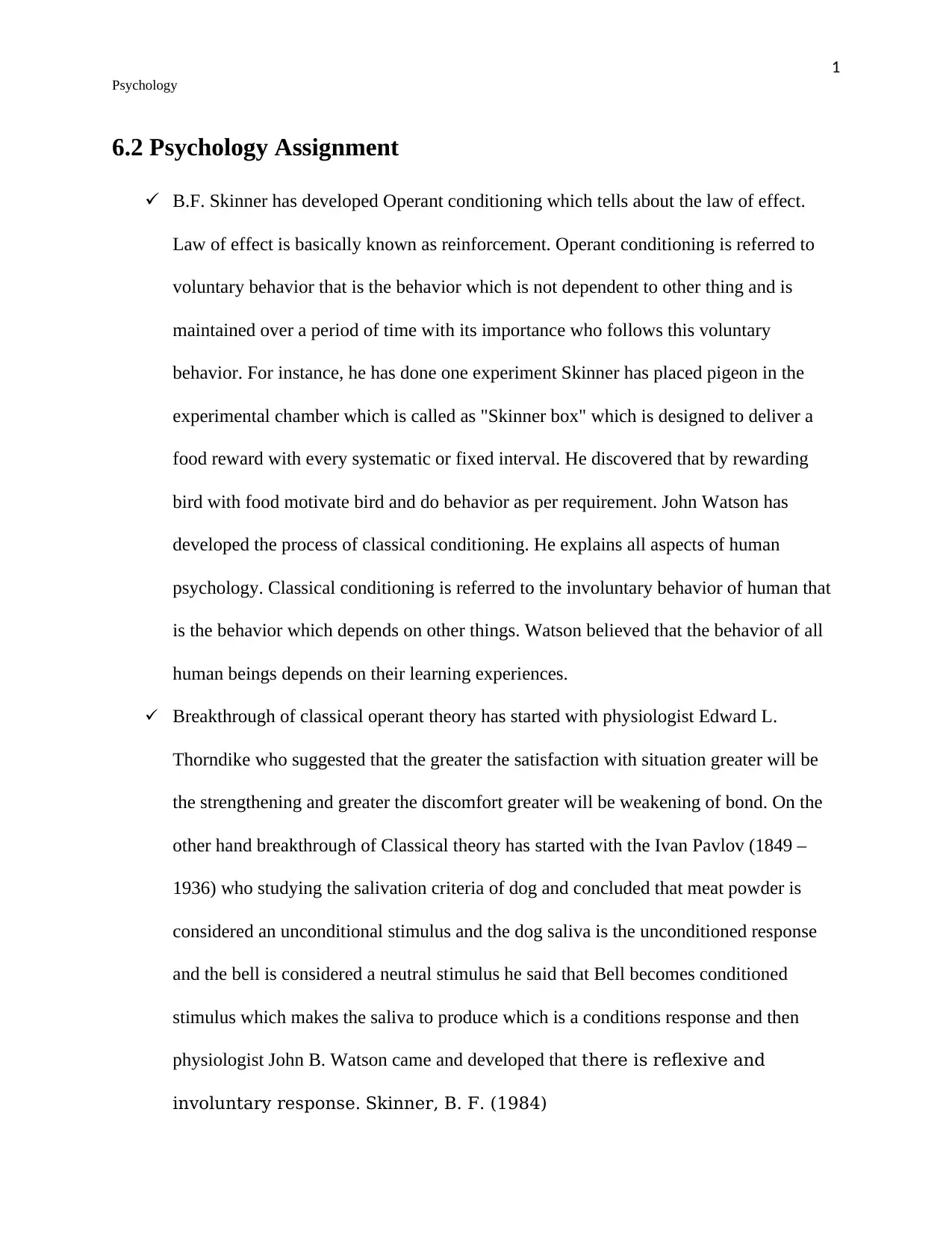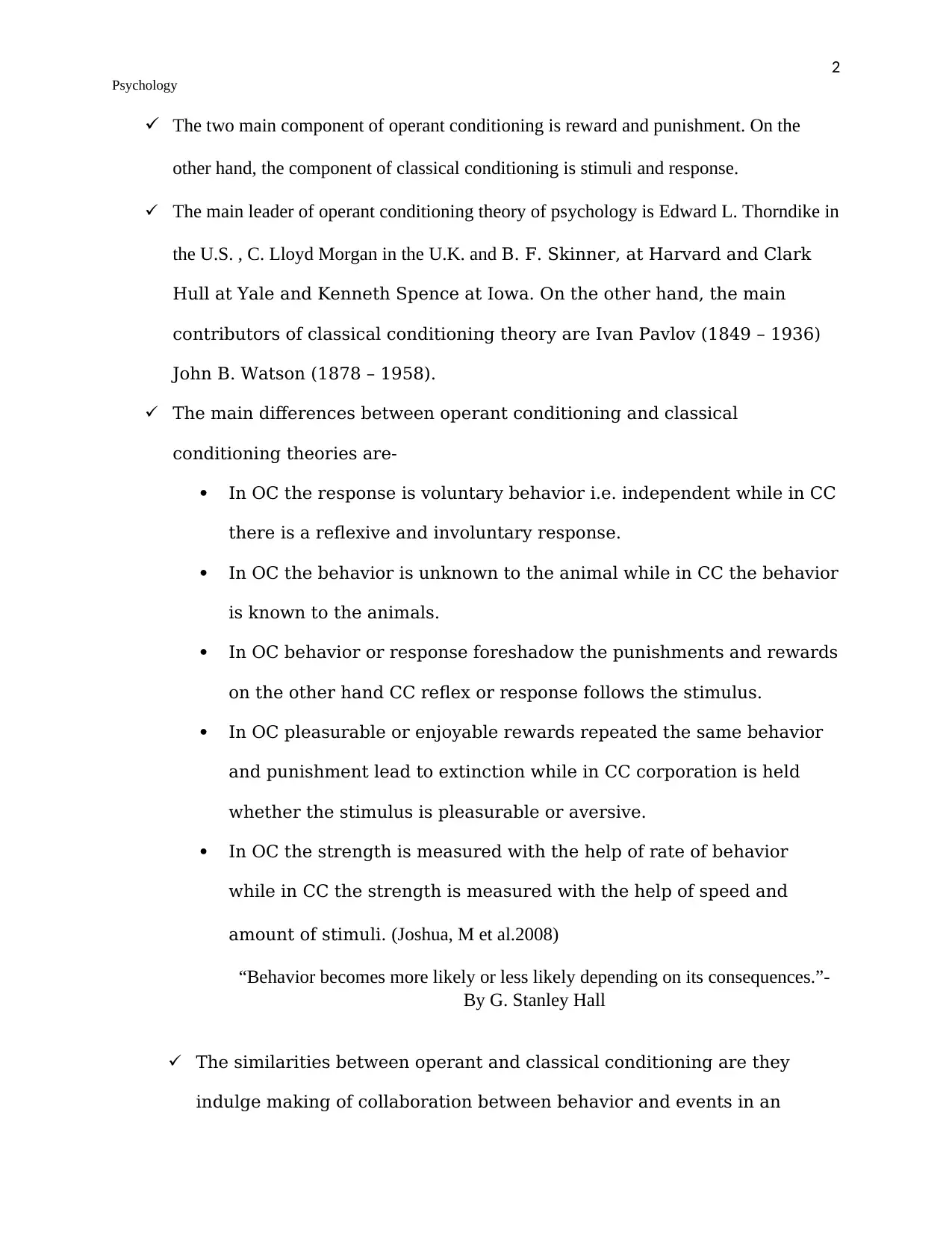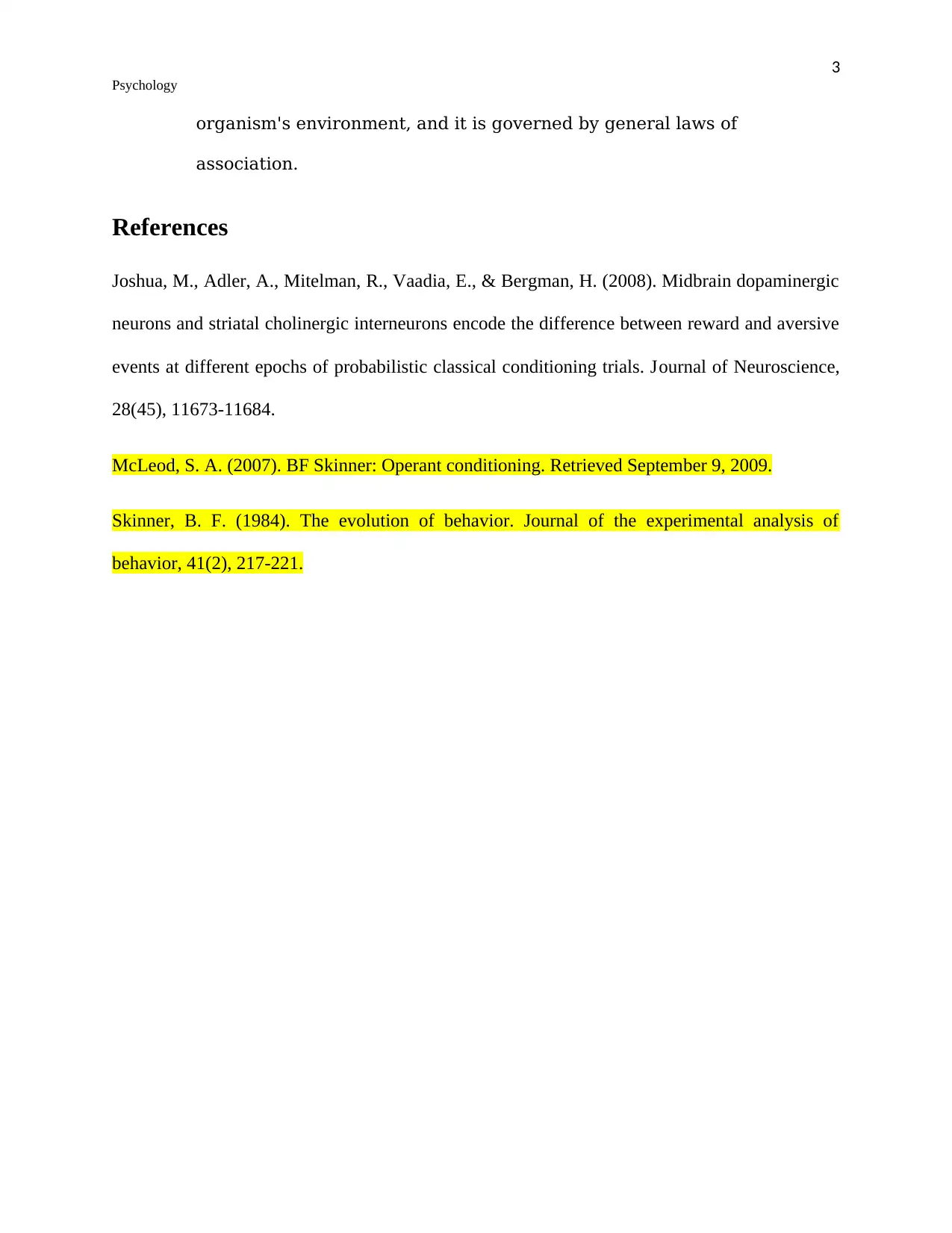Psychology Assignment: Theories of Classical and Operant Conditioning
VerifiedAdded on 2019/09/30
|4
|726
|410
Homework Assignment
AI Summary
This psychology assignment explores and contrasts two fundamental learning theories: operant and classical conditioning. It begins by defining operant conditioning, emphasizing B.F. Skinner's contributions and the law of effect, where behaviors are shaped by rewards and punishments. The assignment then introduces classical conditioning, focusing on John Watson and the concept of involuntary behavior, as well as Edward L. Thorndike and Ivan Pavlov's pioneering work. Key differences between the two theories are highlighted, including the nature of the response (voluntary vs. reflexive), the role of stimuli and reinforcement, and how behavior strength is measured. The assignment also discusses the similarities between the two theories, such as their shared basis in association and their governance by general laws. Finally, the document provides references to support the information presented, offering a comprehensive overview of the topic.
1 out of 4










![[object Object]](/_next/static/media/star-bottom.7253800d.svg)